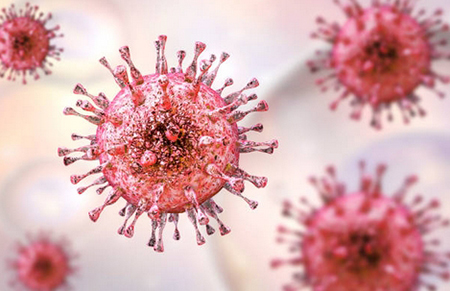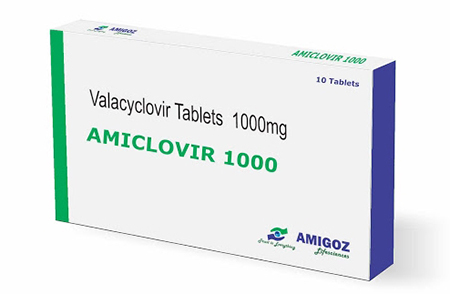What is genital herpes and how is it treated?


Genital herpes is a viral infection that affects the mucous membranes of the genital organs. External manifestations of the disease are associated with the formation of painful ulcers and erosions in the genital area. Patients may also complain of skin swelling, burning, fever, and general malaise. Due to the relapsing course, genital herpes is not always symptomatic. During remission, i.e. when there are no symptoms, the patient remains a carrier of the virus being unaware of it. Untreated, pathology can cause severe complications, including cancer, opportunistic infections, and damage to the nervous system.
Short information about genital herpes
What causes genital herpes?

The causative agent of the disease is the herpes simplex virus of the second type. Similar manifestations can also occur as a result of infection by the other pathogens, such as cytomegalovirus, herpes zoster, Epstein-Barr virus, bacterial and fungal infections. By the appearance of it is impossible to accurately determine the pathogen, so the diagnosis must be made only based on the results of laboratory tests. It is worth noting that herpes simplex can infect both the skin of the face and mucous membranes of the genitals, so localization should not indicate a specific type of infection, i.e. type of herpes that caused it.
It is estimated that the virus is present in the bodies of 70-85% of the total world population. It can be present without any symptoms and exacerbations and remains in the body even after a treated flare-up. Relapses of genital herpes usually occur in impaired immunity, hypothermia, and malnutrition. At the highest risk of relapsing infection are HIV-infected men and women.
Genital herpes transmission methods
The first contraction of herpes simplex virus infection usually occurs in childhood. The infection is airborne so the more contacts a child has and a higher is the density of population, the higher is the risk of virus contraction.
Secondary invasion of the virus most often occurs through sexual contact. The source of the causative agent of herpes can be not only an ulcer of the mucous membrane but also an intact area of the patient's skin. The probability of transmission of the virus in unprotected intercourse is 7.5%. Using a condom reduces the risk by only 50-75% since the pathogen can enter the body through unprotected areas of the skin.
Other methods of infection
1. Transmission of the virus to the baby during childbirth or through the placenta. A large number of viral particles can be found in the uterus and cervical canal.
2. Household infection through personal hygiene items. Under certain conditions, the virus can persist in the environment for several hours.
3. Self-transmission of the virus from another part of the body. For example, a patient can transfer the first type of herpes virus to the genital mucosa.
In most cases, the infection develops in 20-30-year-old adults. Around 40% of people with genital herpes continue spreading the infection because they are unaware of the condition and show no symptoms. Although the risk of infecting another person is lower when there is no exacerbation of the disease or a person suppresses the virus with antiviral medicines, the risk is still present.
Risk factors for the development of genital herpes
Certain conditions and signs may contribute to viral invasion. Risk factors may be associated with primary diseases and a person’s lifestyle.
Genital herpes predisposition factors:
- Gender (In women, the disease is much more often diagnosed);
- Unprotected sex (using a condom helps reduce the likelihood of infection);
- Sexual promiscuity;
- The presence of other infections affecting the genitals;
- Violation of the immune system, including acquired immunodeficiency, taking medicines to suppress immunity, etc.;
- Carrying out various surgical interventions in non-sterile conditions.
Preventive measures help reduce the risk of viral invasion.
Herpes virus peculiarities
The herpes virus of the second type (HSV-2) is the main causative agent of the disease. The genetic material of the pathogen is represented by a double-stranded DNA molecule. After penetration into the mucous membranes of the genital organs, the pathogen migrates to the cells of the nervous system, so many complications of genital herpes are associated with the central nervous system. The virus can remain in neurons for a long time even with drug therapy. However, high temperature quickly destroys the virus.
The causative agent of genital herpes has properties:
1. Significant neurovirulence. The immune system does not stop the invasion of viruses in the cells of the nervous system.
2. Latency. Herpes gets into the infectious nerves close to the gate and does not appear symptomatically for a long time.
3. Reactivation. Repeated virus replication can occur even after prolonged remission. Relapses are observed in fever, injuries, overcooling, stress, menstruation, and other conditions that lower local or general immunity.
Cellular immunity is able to fight the pathogen, however, in patients with HIV infection and other diseases that affect the protective properties of the body, the virus spreads rapidly in the tissues. HSV-2 penetrates into susceptible cells through special receptors, introduces its own genetic information into DNA, and reproduces new viral particles, which subsequently migrate to other areas. Lymphocytes are able to synthesize specific antibodies against the pathogen, however, even after the HSV-1 infection, the development of a different type of herpes is not excluded.
How is genital herpes treated?

There are several antiviral medicines for herpes – Acyclovir, Famvir, and Valacyclovir. The most convenient for use is Valacyclovir also sold under the brand name Valtrex. You can buy a generic version of the medication at our online drugstore to get the effective treatment cheap.
Valacyclovir for genital herpes is used by 500 mg twice a day. In the case of relapsing genital herpes, the treatment should continue for 3-5 days after the occurrence of the first symptom.
In the case of first herpes manifestation when it can be more severe than in the subsequent cases, the therapy is started with the first symptom occurrence and is continued for 5-10 days.
In the frequent relapses, the medication is used when the virus is dormant or in the occurrence of first symptoms, i.e. itching, burning sensation.
Prevention methods

Due to the high spread of the virus and a variety of invasion methods, it is difficult to prevent genital herpes but some preventive recommendations help lower the risk of complications:
- Using a condom and treating an unprotected skin with an antiseptic after sex.
- Preventive use of antiviral agents after questionable sexual intercourse.
- Herpes screening for pregnancy planning. If a woman prefers natural birth, it is recommended to undergo antiviral therapy in advance.
- Careful hygiene to prevent the spread of the virus to other anatomical areas.
- Timely treatment of infectious diseases affecting the external genital organs.
- Elimination of herpes relapse triggers (e.g. overcooling, use of immunity suppressing drugs, for instance, long-term use of antibiotics, etc.).
Thus, genital herpes is a common infection that affects the organs of the genitourinary system. If skin rashes appear in the genital area, you must make an appointment with a venereologist and undergo all necessary examinations.
(Updated at Apr 14 / 2024)
Valtrex articles:
Some of the trademarks used in this Web Site appear for identification purposes only.
All orders are reviewed by a licensed physician and pharmacist before being dispensed and shipped.
The statements contained herein are not intended to diagnose, treat, cure or prevent disease. The statements are for informational purposes only and is it not meant to replace the services or recommendations of a physician or qualified health care practitioner. If you have questions about the drugs you are taking, check with your doctor, nurse, or pharmacist.